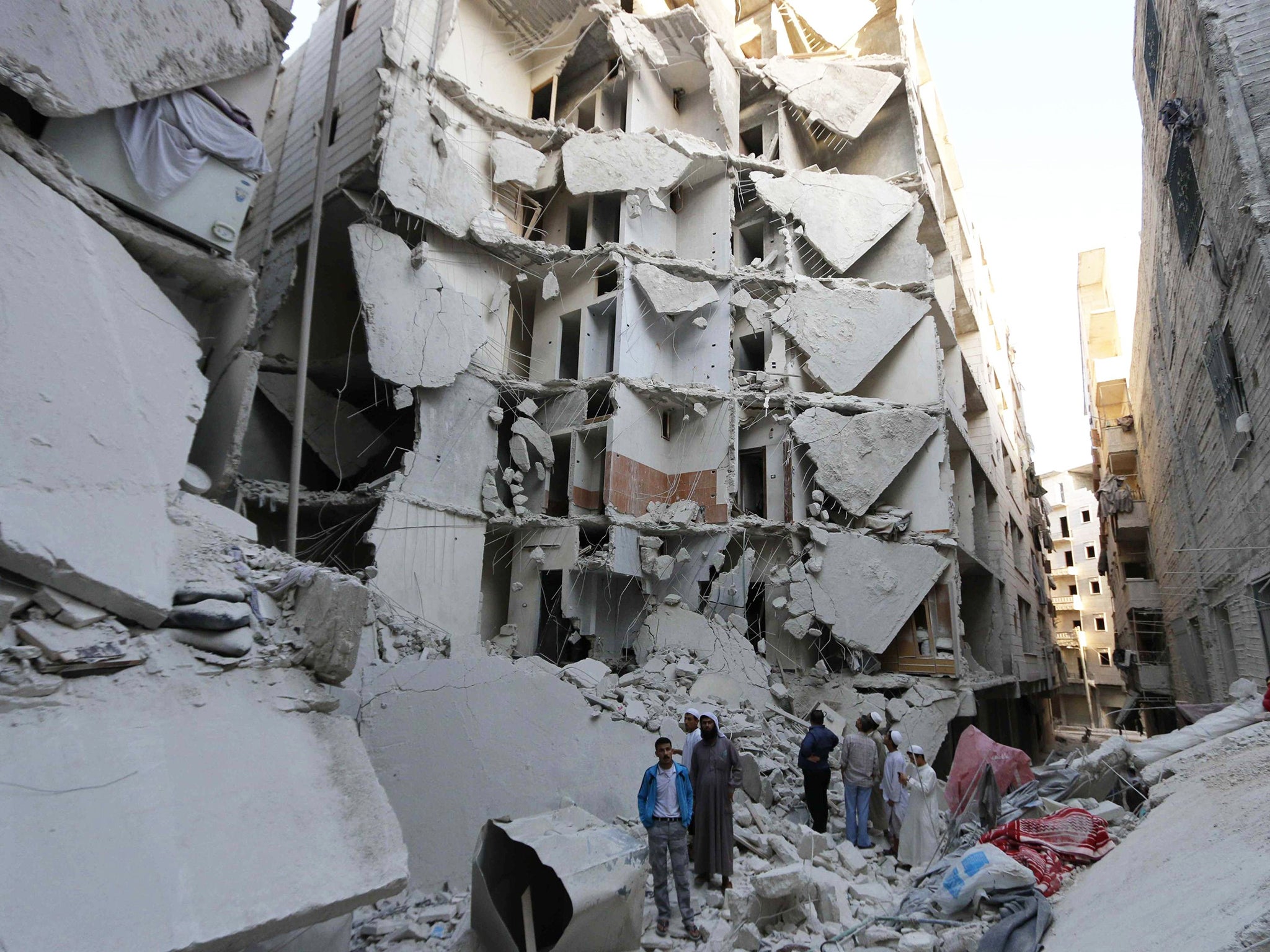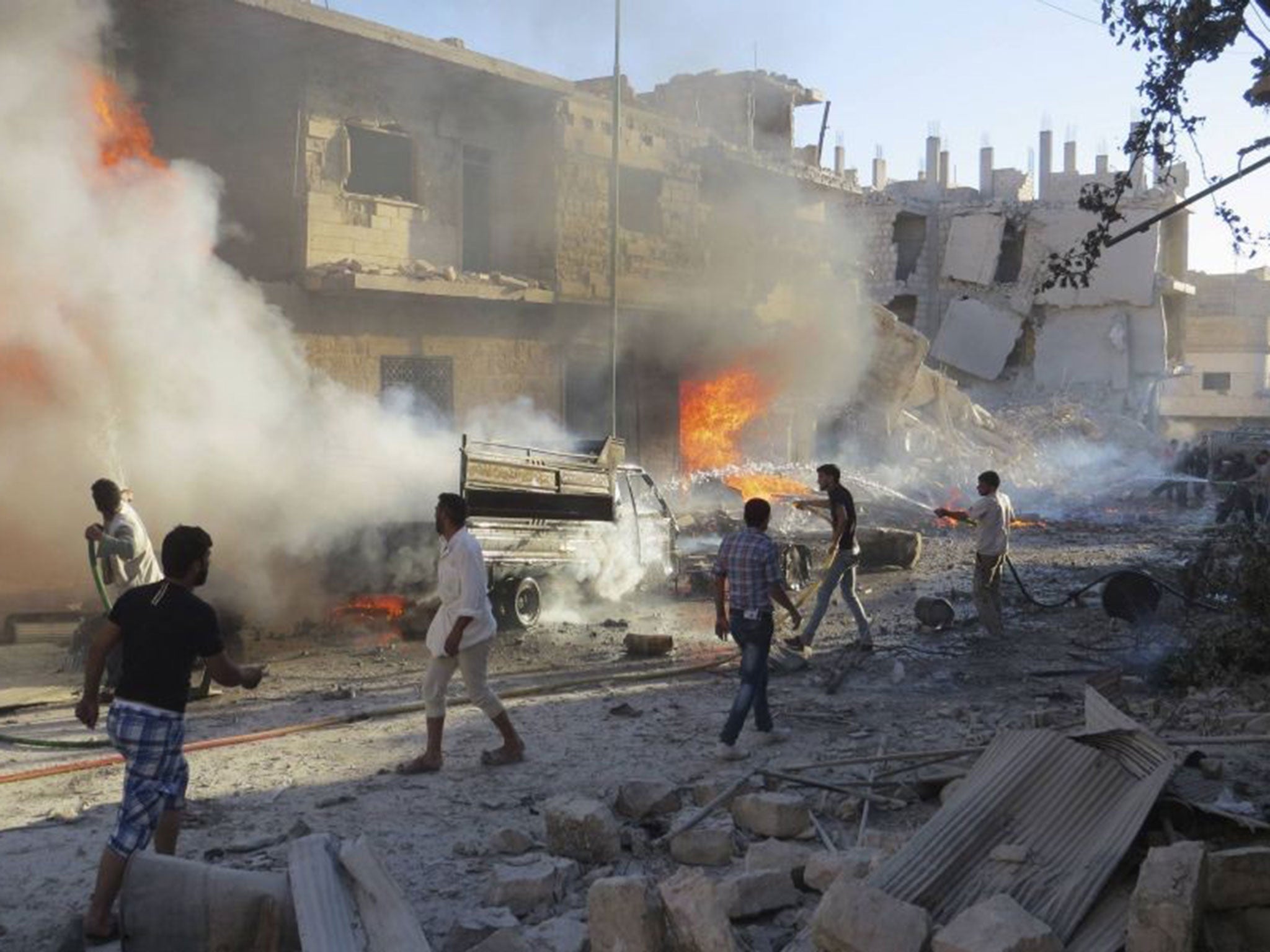Syria crisis: The harrowing stories that show why the atrocities committed by Assad's forces must not be forgotten
'I can never forget those tiny body parts that probably belonged to a little boy'

Your support helps us to tell the story
From reproductive rights to climate change to Big Tech, The Independent is on the ground when the story is developing. Whether it's investigating the financials of Elon Musk's pro-Trump PAC or producing our latest documentary, 'The A Word', which shines a light on the American women fighting for reproductive rights, we know how important it is to parse out the facts from the messaging.
At such a critical moment in US history, we need reporters on the ground. Your donation allows us to keep sending journalists to speak to both sides of the story.
The Independent is trusted by Americans across the entire political spectrum. And unlike many other quality news outlets, we choose not to lock Americans out of our reporting and analysis with paywalls. We believe quality journalism should be available to everyone, paid for by those who can afford it.
Your support makes all the difference."We are somehow getting used to regular bombings but sometimes you are confronted with a scene that you just cannot cope with."
That is the eyewitness account of the "indescribable, horrifying destruction" wrought by Bashar al-Assad’s forces after a single day of air strikes by AK, a paramedic risking his life to save trapped civilians.
The bombing near Damascus on 23 January killed an estimated 70 people, including children whose bodies were hidden by the dust of entire buildings razed to the ground.
The Syrian President has denied using “indiscriminate weapons” on rebel-held residential areas, claiming his army’s strikes were aimed “at terrorists in order to protect civilians”.
A doctor and two paramedics have spoken to Doctors Without Borders (MSF) of their horror during intense bombing in Ghouta – an opposition-held district east of the capital that was the scene of the catastrophic chemical attack in 2013.
Here are their accounts of the regime’s attack on a crowded market in the town of Hamouriyeh that injured an estimated 147 people on 23 January.
Dr N - director of a hospital supported by MSF in East Ghouta
Around 200 to 250 people were gathered in the public square when it was bombed by a fighter jet. Ambulances were immediately directed to the area to evacuate the wounded. The first batch of wounded arrived few minutes later: 20 bodies and 15 wounded. The triage started right away and priority was given to people with life-threatening wounds.
Those who required urgent surgery were transferred to the operating theatre, while pleural tap, hemorrhage control and bone stabilisation were carried out in the triage zone, on the few beds available or on the ground. Paramedics were running and bringing in more wounded people, so I realised there was a catastrophe going on. It was not the “routine” shelling we have become used to.
The area was hit again as ambulances tried to evacuate the dead and wounded, causing more injuries, including among paramedics. Thankfully, their wounds were not serious. But one ambulance was hit and totally destroyed and a second was damaged. We could hear the explosions and the sound of the fighter jets. I couldn’t stop thinking about the possibility of a raid on the hospital, as this had happened before and we lost two of our colleagues.
There were men, women and children among the wounded. Their wounds ranged from minor to critical. The most depressing were the nerve injuries. When the brain is hit by shrapnel there is not much we can do. There are no brain surgeons in the whole area and the means to perform a brain surgery are simply not available. Among the most painful cases for us are the children, when we have to amputate a limb to save their life. Such difficult decisions are a real test for doctors with very limited options.
The final toll was very heavy. We received 128 victims. We managed to save the lives of 60 people, but 68 of our patients died.
The world has been watching for years. The medical situation and the general living conditions are beyond any red lines and alarm bells have been ringing in vain for a long time.
AA and AK - two paramedics working in East Ghouta
AA: I was shocked when I arrived. The place was hardly recognisable due to the extent of destruction. Dozens of people, dead and wounded, were scattered all over the place: children, men, women, old people.
AK: A thick cloud of dust covered the place. You could only see a few metres ahead, making it very difficult to locate the victims. The bombs brought entire buildings to the ground, with residents inside. There was indescribable, horrifying destruction. We immediately started evacuating as many victims as we could, driving them to hospitals in the region.
AA:
AK: I was also hit in the arm. Thankfully my injury was also superficial. It is not uncommon for there to be a second wave of bombing . As paramedics, every time we are dispatched to evacuate victims, we never discount the possibility that we could become one of the statistics. We had already been bombed before while evacuating wounded people. One of my colleagues was seriously injured in that bombing. He lost an arm. He is still alive but he can’t work anymore.
AA: We were feeling scared and anxious but started rescuing victims and evacuating the wounded. . The rescue operations are made harder by technical obstacles and lack of resources. Fuel is scarce and we have no personal protection gear, such as helmets. Our work is almost an impossible mission. Our attempts to respond to these needs fail most of the time.
We are somehow getting used to regular bombings but sometimes you are confronted with a scene that you just cannot cope with. I can never forget those tiny body parts that probably belonged to a little boy who was once full of life. This is of the sort of thing we see almost every day. We forget some images but others refuse to fade away.
What we are seeing here and what is happening is a tragedy. The risks we take are scary. We knew from day one that anything was possible as far as our destiny was concerned. We made up our mind and accepted the job as a humanitarian mission, with the knowledge that if we stopped doing what we are doing, the humanitarian situation would get worse. We don’t know what’s in store for us but we know that our lives are at stake, today more than ever. We try to be as cautious as possible but in reality we share the same general danger as everyone living here under the bombs. Our fate is dictated by the siege we are living under, but it only makes us more determined to do our job, hoping that we can help alleviate this ordeal.



The government’s official news agency, Sana, reported that Assad’s forces had carried out operations against “terrorists” on the day.
Dr Bart Janssens, Director of Operations for MSF, said the situation in Damascus had deteriorated “dramatically” in the past month.
“The number of patients treated in the hospitals we support has gone beyond breaking point, and the number of requests for medical supplies has shot up,” he added.
“The massive bombardment on 5 February, and the extremely deadly bombing in a crowded market on Friday 23 January are particularly horrific, and have chilled us to the core.
“But these incidents are in no way unique - they are part of an ongoing pattern of unimaginable violence.”
Militants and soldiers on all sides of the conflict, including regime forces, Isis, Islamist groups, secular rebels and Kurds have been accused of atrocities in the four-year war, which started following the Arab Spring of 2011.
Join our commenting forum
Join thought-provoking conversations, follow other Independent readers and see their replies
Comments